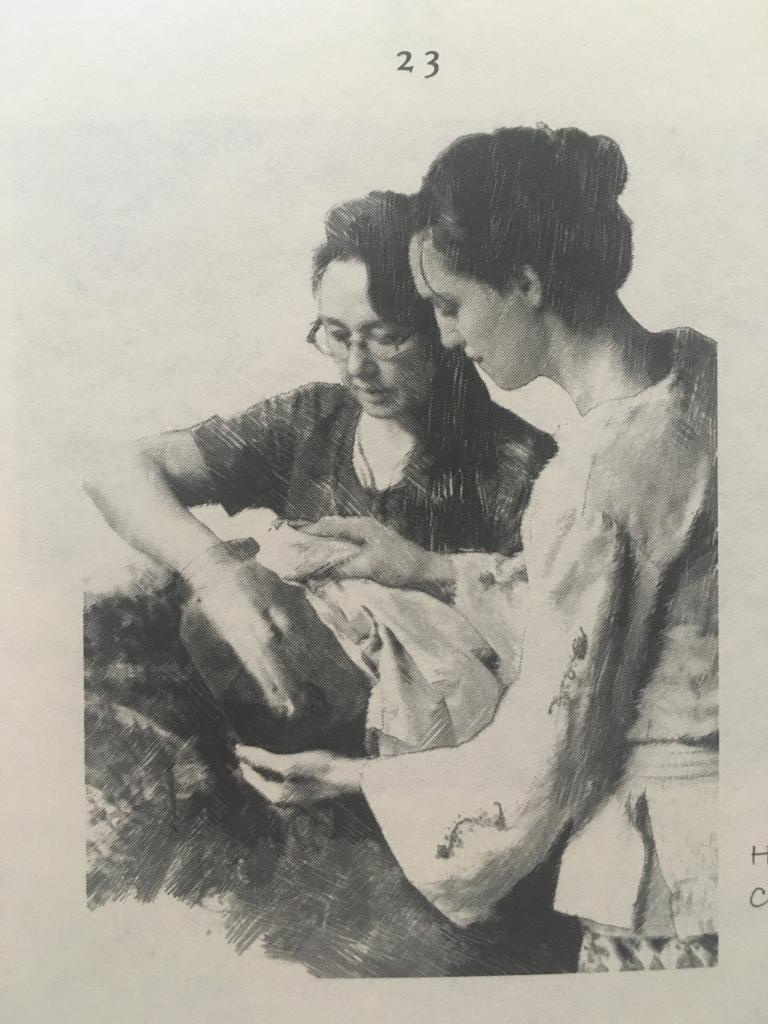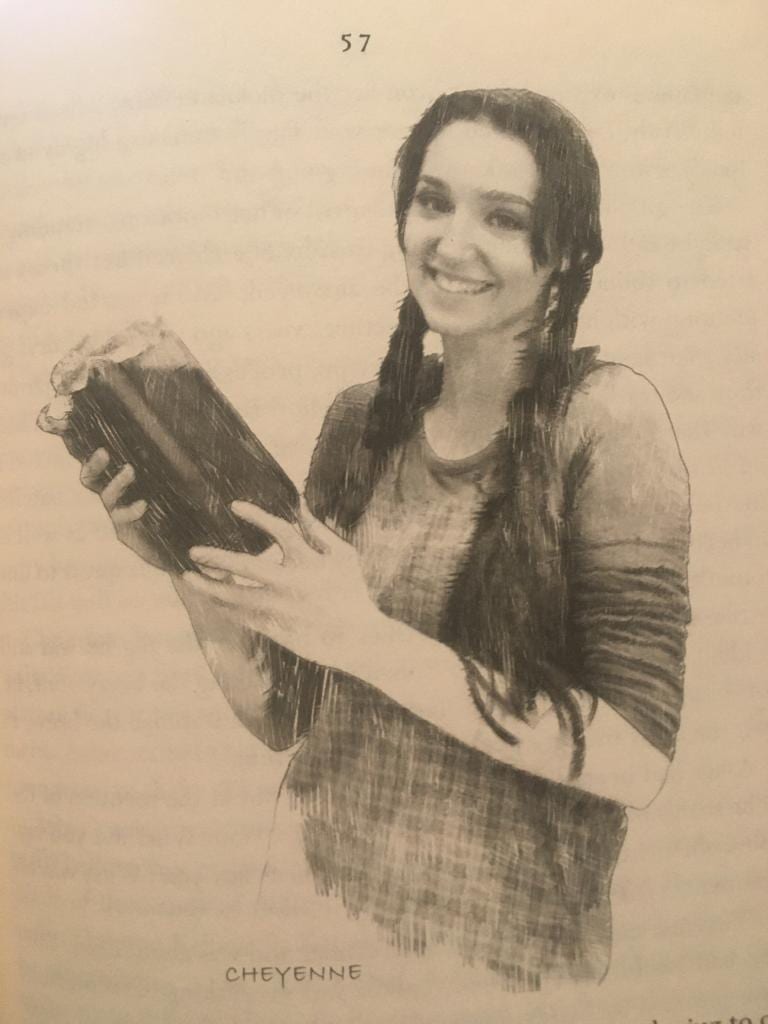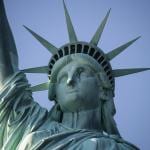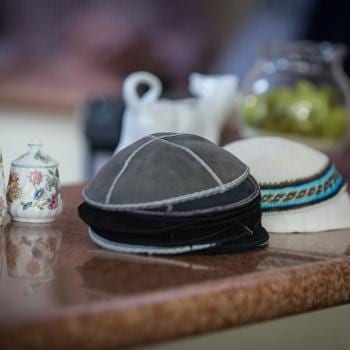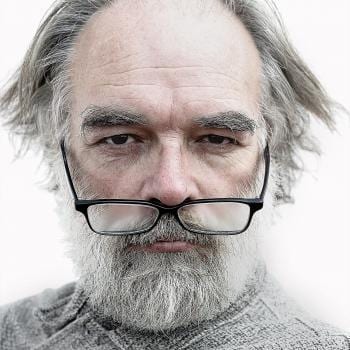The Vision, pp. 11-24
Let’s start with a footnote I missed last week. First, I have to give you some text:
Louise was a good-hearted matchmaker, and she wasn’t the only one that had noticed the pictures of Cheyenne. he had noticed them too. Louise was right: she was a beauty. He had found her on www.threadtree.com and corresponded with her after he had decided to move too Tennessee. At least, that had been his excuse to correspond with her.
Here is the footnote:
ThreadTree is a growing social network similar to facebook, only much, much more. It is a place to visit old friends and meet new ones. It is a place to learn and a place to teach others. On ThreadTree you can ask a question and get the answer, or see a question and give an answer. You can sign up to meet people who share your interest in sports, missions, politics, natural health or even meet like-minded singles and find out what is happening and where. From keeping up with your friends, to affecting our country’s lawmakers, ThreadTree gives THE PEOPLE a voice. Get heard. Meet those who can make a difference. www.threadtree.com.
So, I’m pretty sure this is now defunct. But also, everyone who would have used this is on Facebook. Debi doesn’t say whether this social network was Christian in orientation, but that would seem likely. So, about Facebook. I first got on facebook when I was a college student—an undergrad. I remember when they first started letting people without a college email address join, and I was not happy. Suddenly my mom was on this private space I’d used to talk with my college friends?! And all her friends were too?!
Yeah. That ended badly.
Anyway! Let’s turn to the section for today. Remember, Asher (who is definitely not a newly radicalized white nationalist with a car full of explosives about to wage a reign of terror on the Muslims of Seattle), is about to head to Tennessee to join The Last Publishers ministry, which his deceased friend and mentor, Dan, was involved with. (Remember, Dan maybe died in a gas explosion engineered by Muslims.)
Chapter 2 of this book is two pages long. And not two two-side page. Two sides of one page. And it’s weirdly cryptic.
OUR LITTLE MARY, SATURDAY, ONE YEAR EARLIER
An elderly couple sat down to Sunday supper. They quietly bowed their greyed heads to give thanks to God for their dinner of fresh baked trout and wheat rolls. The little garden that Mary tended had provided them a nice salad and herbs for hot tea. In spite of the delectable fare, neither of them were very hungry. With the passing of years, their bodies weary, food no longer seemed important.
So they decide to go cruise for teenage prostitutes.
Uh. Really.
“Mary, dear, somewhere out on the street this evening there is another Mary who needs our prayers. I know we promised to place the past behind us and never mention it, but so often I think of how your dear grandmother prayed for you. I remember how God miraculously pulled out out of the miry pit of sin.”
Notice how prostitution is portrayed here: the miry pit of sin.
Some women freely choose sex work; sex work needs to be legalized for quite a number of reasons. But in many cases, those who sell sex do so because they are down on their luck and this is the only option available to them. Banning sex work or charging sex workers for breaking the law does not improve these women’s situation in any way, but this reality makes Debi’s language striking nonetheless.
For Debi, women and girls who turn to sex work for survival are in the miry pit of sin. They’re not stuck in a bad situation. They’re not making hard choices. They’re engaging in sinful sins.
I don’t miss this view of the world.
So. The elderly Mary was apparently once a sex worker.
“Well,” he squeezed her hand, “tonight I feel that God has revealed to me that there is a little Mary out on the streets that needs our prayers. We’re going to find her. Although we don’t know her, I believe God will guide us to the right one. Tonight it’s her turn for someone to pray.”
Mary flushed; even after 62 years, the regret she felt for her youthful sins still brought shame. “Oh, Henry, I’m so ashamed. I do want to help some other little girl before I die.”
This poor woman, to feel such guilt and shame over this all her life! But also? Sixty-two is not that old! It’s not old at all! If this Mary has no appetite she should probably see her doctor about that!
So they drive to the red light area of town, park in the shadows, and watch the girls who “paraded their wares, waiting to be picked up by men.” They pick out a girl: “a very young, childlike girl with very long pale hair.” They decide to call this girl Mary. They sit in their car and pray for her, and then they go home. I genuinely thought they were going to try to nab her, but they don’t even talk to her.
And then the chapter ends. All two pages of it.
Here we switch to Asher, who is now in Tennessee. He’s up on the ridge that surrounds the valley The Last Publishers is located in. There’s even a map, but it’s funny, because it genuinely does not matter. It’s like a compound: there’s an old farmhouse, gardens and a pond, an office building, and some warehouses.
Asher somehow got a gig with the Fish and Game Department to count wildlife. That’s what he’s doing. But then he starts feeling like something is … off. Not quite right. He assumes it’s God telling him something is wrong. So he starts climbing all around the ridge and looking all over with his binoculars.
For some reason, he never actually goes down into the valley to see if anything is wrong. It’s weird. He spends pages and pages and pages climbing around the ridge, walking forever, looking all over, second guessing the sense he has and then trusting it again, checking for smoke to see if any of the buildings on the compound are burning … and never once thinks of going down there to make sure things are ok.
It’s weird.
Asher turned his back to the farmhouse. He gazed due north out of the valley, studying the narrow entrance. The gravel rode lay undisturbed. Not even the smallest dust cloud billowed. Closing his eyes, eh swept the air with his nose, sniffing for smoke, checking for a forest fire, but he caught only a brief wood stove odor so familiar in this area. Putting the binoculars to his eyes again, he slowly surveyed the top of the ridge.
I’m telling you, it’s pages of this.
His brows knit with concern as he contemplated. Nothing seemed out of order. No one was at the Last Publishers’ warehouse. He had watched the headlights of Malachi Freeman’s car as he left for his prison ministry some twenty minutes earlier.
Malachi and Hope Freeman run The Last Publishers. They’re Debi’s stand-in for herself and her husband, Michael Pearl. Like Michael Pearl, Malachi Freeman runs a prison ministry, where he preaches to prisoners. Like Debi herself, Hope Freeman is very into healing herbs and all that. And then there’s their fifth child, Cheyenne, who works at The Herb Den and does herb work with her mother—and oh hey, the Pearls’ fifth child is a daughter named Shoshanna, who with her husband runs The Bulk Herb Store. How about that.
Asher felt his heart race as his mind fastened on Malachi’s youngest daughter.
PROTECT HER – “God, don’t let anything happen to her.” He shook his head, trying to throw off the anxiety.
Those bold words are a weird attempt at headers. They’re in here quite a bit. As Asher looks around with his binoculars, he spies Cheyenne entering the valley in her “ridiculous huge pink panel truck.”
“Oh, but Lord,” his mouth went dry as he continued his prayer, “that gal is fine! She is mighty, MIGHTY fine.”
Lovely.
Asher’s sense of urgency continues, and we learn that:
Never in all the time he had lived in Seattle had such sure sense of dread filled his being, not even when he and Dan were being stalked by Muslims.
But still he does not do anything. He just keeps making a loop around the ridge, checking that his gun is loaded, etc. If I were worried about someone, I’d feel like I’d go to them so that I could protect them.
What’s actually going on? I’ll tell you:
Hope invented a magic berry brew that’s basically the elixir of life and heals anything, and she used it to cure some sort of mystery illness Malachi had. Somehow, the white supremacist Klansman who run their podunk town learned about it. Now, one of their own has come to spy on Hope and learn where she keeps her magic potion so that he can steal some and fix his dick, which is apparently broken.
Oh I’m sorry, did you think I just strung a bunch of words together there? No. No I did not. Every bit of that is absolutely exactly what is happening here. This evil white supremacist, Derek, has put a listening device in Hope’s workroom (no, I have no idea how he did this) and is sitting out back listening in. When Cheyenne shows up, Derek starts cackling to himself about how he’s going to rape her—roughly.
She gracefully exited the vehicle and confidently loped up the steep drive. The hope of finding true love, the joy of being alive, and youthful hormones pulsed through her body. On impulse, she screamed with pleasure as she ran, announcing her arrival to her mother.
Lustful, beady eyes drank in the young woman’s form.
She had no clue.
And for some reason Asher is wandering around the ridge struck with absolute dread and a sense that something is wrong, and relying on his binoculars to scout out the problem? What? There is a literal violent would-be rapist right outside the house his almost-girlfriend is in with her mother and no one else.
I am beyond baffled by this. There’s also a whole bunch of inside the mind of a rapist stuff in here that I am absolutely not going to reprint here. This Derek guy is pure evil.
Meanwhile, in the workroom, Hope and Cheyenne get to talking, and it turns out that they’ve contracted with someone in China to mass-produce their magical berry brew, and that’s what’s going to fund the mass printing of the God’s Story graphic novels The Last Publishers are churning out. BUT that’s not all! After letting drop that their store of the berry brew is kept in the cellar, Hope takes Cheyenne aside to tell her about the even more magical super powerful healing formula she has created—top secret. Worried that someone might be eavesdropping, Hope turns the fan on for this part, and let me just tell you, this is wild.
Oh wait, quick pause to describe Hope and Cheyenne:
Hope was garbed in her customary long bohemian dress, her gray-streaked, dark hair hanging loosely braided down her back. Huddled over a table of dried berries and jars of foamy liquid brews, Hope looked just like what she was, a classic flower-child of the 60s with dominant Indian ancestry.
In contrast, Cheyenne was what her mama called a “newfangled” flower child. She was a riot of color with a bright orange silk scarf tied around the top of her head and a haphazard assortment of clothes finishing out her attire. She looked both artistic and trendy without any conscious effort.
Cheyenne’s Indian heritage was easily seen in her features. Small children that had seen animated movies about Pocahontas sometimes mistook Cheyenne for a living, breathing version of the Indian maiden.
I have seen Pocahontas, and there are pictures of Cheyenne in this book, and that’s a no. Also, I wasn’t supposed to watch Pocahontas, because there were tree gods in it.
I am not going to police anyone’s heritage, except to say both that there are a lot of people in the U.S. South convinced they have Indian heritage who probably don’t, and also that I have actually never seen Debi claim Indian heritage. So maybe it’s just something she’s invented for the book. Which, to go back to that, the pictures included in the book really don’t match up here.
By the way, I’m about 90% sure that Debi and Shoshanna are the models for these pictures, and then they ran it through some sort of photoshopping to create the effect.
It’s perhaps worth noting that there is no mention of them belonging to a tribe, or any mention at all of what tribe they may have some loose distant connection to. Also, their Native heritage never plays any real role in this book—they don’t have Native friends, extended family, etc. They don’t have Native stories, traditions, etc. It feels like their Native heritage is just there to make them slightly exotic—and to set them apart from the white supremacists in town without doing any actual work.
So, as I said, Hope and Cheyenne are talking:
“Are you sure the recipe that we are using at the China plant is going to work as well as the one Dad’s using?”
Hope chuckled at Cheyenne’s concern. “Relax, kid. The China brew will work fine. It does lose some potency in the mass production techniques, but it is good … real good. It’s a slower cure, dependent on a person’s adherence to natural foods, and it will need to be taken daily to maintain healing. That will gaurauntee regular sales.”
Yes, you read that right.
Hope looked up into her daughter’s face and spoke with confidence. “It will be the most amazing cure the world has seen since the Garden of Eden’s Tree of Life. Yeah, our brew will rock pharmaceutical companies, and that’s a fact. It ain’t sugar water, that’s for sure.”
And that’s where I’ll leave it for this week. Yes yes, that means the discussion of the even more potent powerful wonder drug Debi has been hiding up her sleeve will have to wait for next week. As though this “best since the Garden of Eden” healing potion itself weren’t enough! And it also means we’ll have to leave Asher wandering around on the ridge and Derek the white supremacist hiding out back.
Seriously.
I have a Patreon! Please support my writing!

